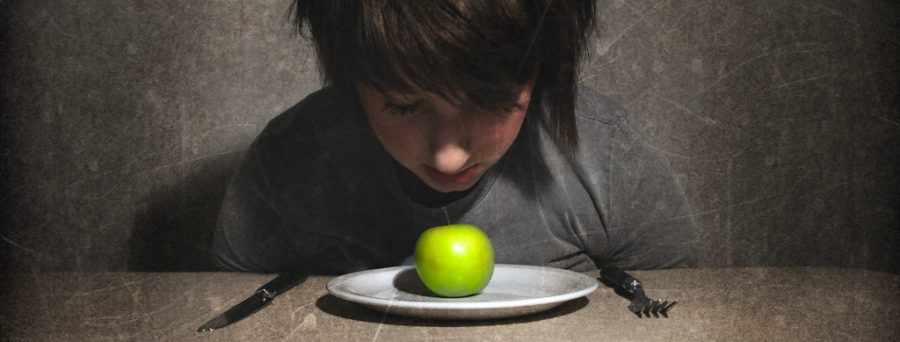Demi Lovato’s Attack on “Diet Culture” Brushes Real Issues Under the Rug
Eating disorders are a very serious issue. However, Demi Lovato’s recent controversy has strongly misrepresented the real concerns about a truly dangerous problem.
Demi Lovato’s recent tirade against diet culture has caused massive controversy on social media. It all started with a visit to a Los Angeles frozen yogurt shop called The Bigg Chill.
Lovato ranted on Instagram about her experience at the location, stating that she was, “[f]inding it extremely hard to order fro-yo from [the shop] when you have to walk past tons of sugar-free cookies/other diet foods before you get to the counter.”
She recommended that the brand try and “do better please” before ending her statement with “#DietCultureVultures.”
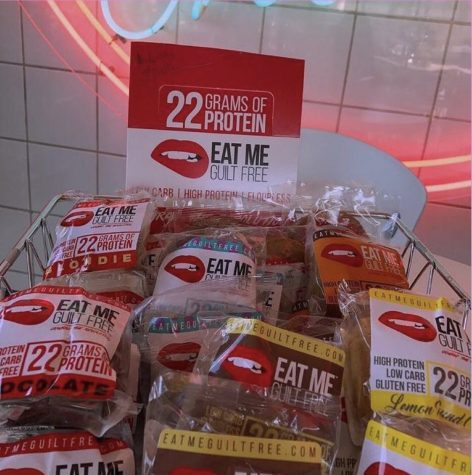
Essentially, she was insinuating that the store’s gratuitous display of sugar-free treats served as a trigger for her eating disorder and made her feel considerably pressured. The social media team representing the small business responded to Lovato via direct messages on Instagram, saying “We are not diet vultures. We cater to all of our customer’s needs for the past 36 years. We are sorry you found this offensive.”
The situation could have ended there, but Lovato decided to fire back, this time full-on criticizing the business for poor service and products that, in her opinion, normalize eating disorders. Countless fans of hers rushed to give the small business negative online reviews, though most have been taken down at this time as they were appropriately marked as spam.
Eventually, Lovato ended the whole debacle by stating that The Bigg Chill needs to be more transparent by labeling its products for individuals with specific health needs (such as celiacs, diabetics, and vegans). Lovato claimed that the business’s apparent lack of clarity confused health needs with diet culture, creating a toxic environment for people with eating disorders.
Of course, Lovato clearly blew the entire situation out of proportion.
“Diet culture” has changed drastically over the years, initially beginning with short-sighted attempts at losing weight quickly in the past to mostly propagating healthy nutrition options and lifestyles in the modern-day.
While some individuals may misuse diet plans in harmful ways, it isn’t the diet itself that is the issue, but the state of mind that the individual is in.
Displaying knives in a kitchenware store does not cause a person to violently begin attacking others. Already being in a dangerous mental state is what drives individuals to do such things. It is important to keep this line of logic in mind when looking at Demi Lovato’s claims, as it makes it apparent that her intentions were grossly misguided and have led more serious issues relating to eating disorders to be pushed to the wayside.
Rather than focusing on diet cookies, it is time to take a closer look at some of the darker corners of the online world that pose a far more real danger to individuals with eating disorders.
When doing research for this article, it only took me a matter of seconds before I was able to find a website with diet plans suggested to individuals with anorexia for the purpose of losing even more weight. One of the diets consists of a slice of bread and a cup of coffee for breakfast, an apple for lunch, and baby carrots for dinner.
It is apparent that following such a diet could have detrimental health effects, but the website does not present as being anything more than a means to reaching physical perfection. The fact that this website was so easy to find shocked me and made me realize the sheer magnitude of the problem people with eating disorders are facing. I can only imagine how difficult it must be to abstain from harmful eating behaviors when so many tips and instructions are accessible with such ease. Unfortunately, the problem only seems to grow from there.
Proana (pro-anorexia), promia (pro-bulimia), and thinspiration are all terms used within communities online that encourage dangerous eating behaviors.
Thinspiration may be the most mainstream of these terms and also may appear to be the most harmless. On the surface, images and posts relating to thinspiration have a positive flair.
For instance, a person might use the word when tagging an image of themselves captioned with something along the lines of “Feeling much better since I lost 5 pounds.” There’s nothing wrong with that until it gets taken too far. In communities that encourage eating disorders, thinspiration is used to push individuals to lose as much weight as possible through any means necessary. It inspires a sense of competition and it isn’t too difficult to find individuals bragging about just how little they weigh in certain corners of the internet.
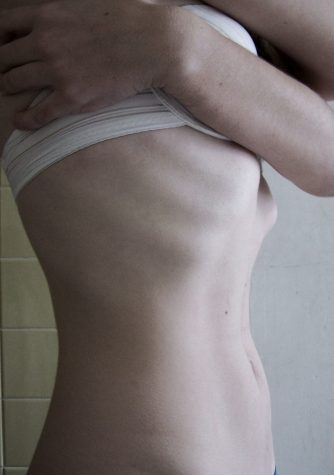
In fact, some of these discussions take place in plain sight. Although there are not many, there are a handful of influencers on YouTube who have eating disorders and show off their behavior as something positive and inspirational. Their online presence cultivates communities of like-minded individuals who encourage one another through public comment sections and other more private chatting locations to continue losing weight. YouTube does have guidelines against content that encourages harmful behavior, but the system is not perfect and plenty of influencers have slipped through the cracks and continue to provide content to their fans.
The same issue can be found on Twitter and Tumblr which, despite both having regulations, still contain plenty of content that outright encourages eating disorders. Tik Tok is yet another social media platform dealing with issues relating to content based on the encouragement of eating disorders. There have been recent attempts to have certain keywords and types of content banned, but some communities have recently discovered ways to work around these regulations, making what was originally intended to be a one-time fight an ongoing battle on the platform.
By now it is clear that, during my research, I witnessed some incredibly disturbing and disheartening things. However, the entire experience was not completely negative.
I have to commend both Instagram and Reddit for making their sites essentially free of the troubling content I viewed on so many other platforms. The only subreddits related to eating disorders that I was able to find were focused exclusively on recovery and were filled with encouraging stories from individuals who have conquered their eating disorders and are using their personal experiences to inspire others. The same was true for Instagram. Any posts that I found when looking for eating disorder-related content were positive and cheerful, sharing even more stories of recovery, providing resources specifically designed to help struggling individuals, and telling the viewer that they are worth so much more than their body image.
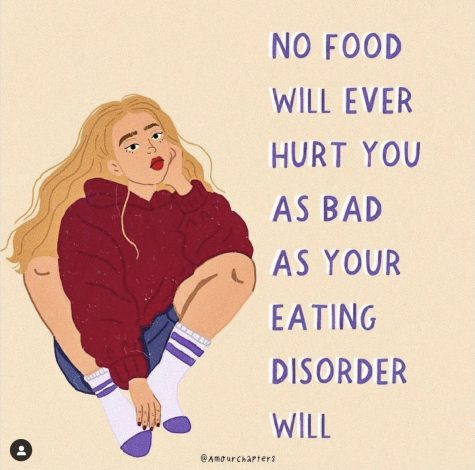
So, what can you do to help with this problem?
First of all, don’t take complaints like Demi Lovato’s too seriously. Diet snacks are not inherently dangerous and neither is diet culture itself. In fact, it is very helpful to those with certain health conditions as well as people looking for alternative sources of nutrition.
What you should be concerned about are videos, posts, comments, and online communities that spread an undeniably harmful message. If you see any, be sure to report and avoid them. If this type of content is posted by anyone you know personally, make sure to contact them and make sure that they are okay. Above all, don’t be afraid to speak out and share resources that can help. Links to appropriate websites are provided below.
Your voice matters. You matter. You can help.
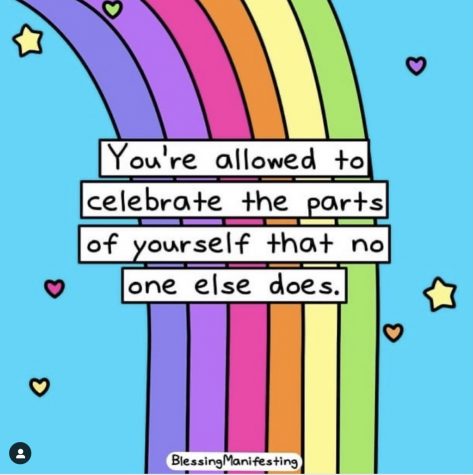
Resources:
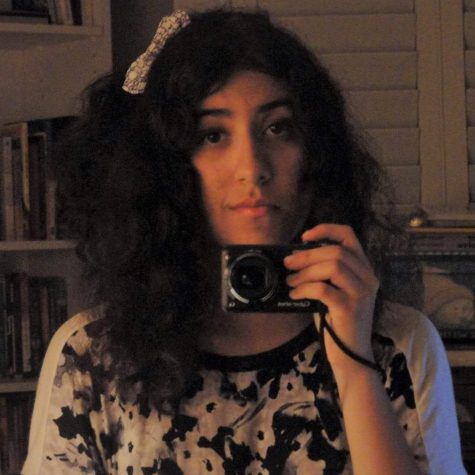
Madeline Phelps is a senior currently attending Arroyo Grande High School, from a distance, of course. When she isn’t doing schoolwork or sitting around...

